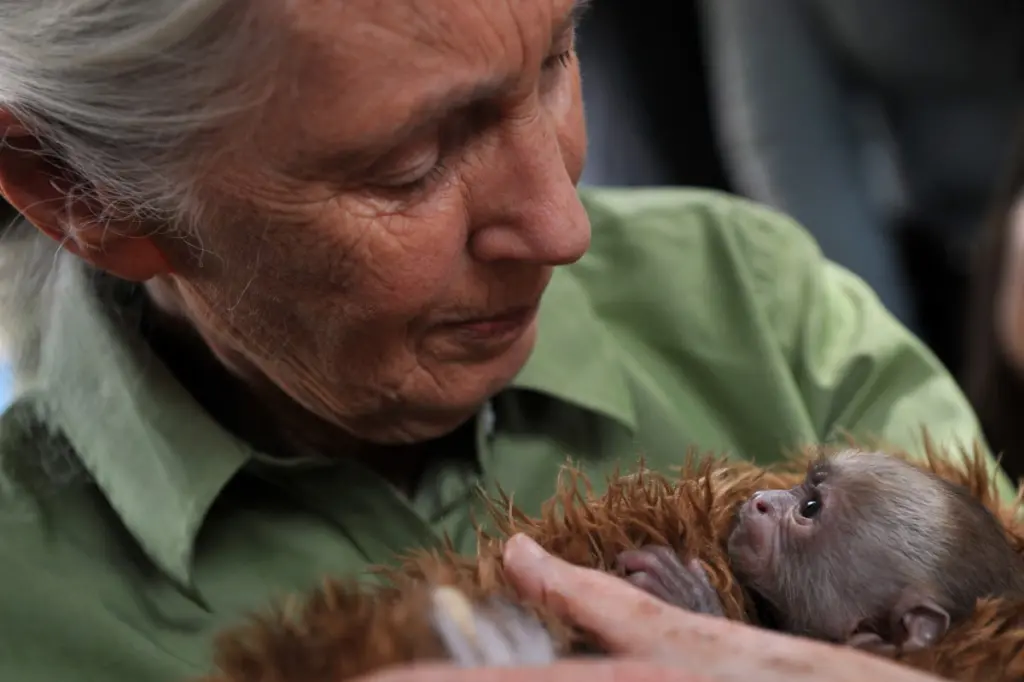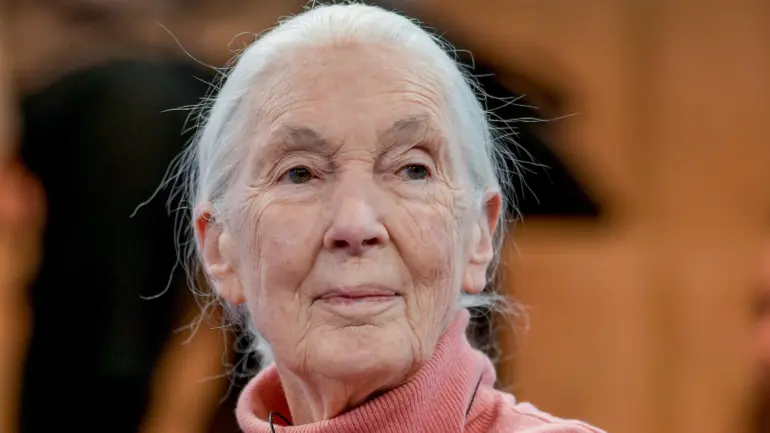Renowned British primatologist and conservationist Jane Goodall, whose groundbreaking work with chimpanzees transformed humanity’s understanding of the animal kingdom, has died at the age of 91, her institute announced on Wednesday.
Goodall passed away from natural causes while on a speaking tour in California, according to a statement posted on social media by the Jane Goodall Institute.
A life among the chimpanzees
Goodall rose to international fame in the 1960s for her pioneering research into the behavior of wild chimpanzees in Gombe National Park, Tanzania. Her methods—observing chimps up close, naming them, and even sharing their bananas—challenged scientific norms of the time and brought a new empathy to the study of animals.
She was the first scientist to document that chimpanzees use tools—famously observing one named David Greybeard fishing termites from a mound using a twig. Later, she witnessed chimpanzees modifying twigs for more efficient use, an act once thought to be uniquely human.

Goodall also recorded evidence of emotions and complex social behaviors among chimpanzees, including grief, cooperation, and aggression, radically shifting our understanding of animal intelligence and human evolution.
Clad in her iconic collared shirts, shorts, and often with binoculars slung around her neck, Goodall became the face of field biology and an inspiration to generations of conservationists.
From scientist to global activist
Though trained initially as a secretary, Goodall’s passion for animals and nature led her to Kenya in 1957, where she began working with famed paleoanthropologist Louis Leakey. With his support, she began her chimpanzee research in Tanzania and eventually earned a doctorate from Cambridge University—becoming one of the few people to do so without an undergraduate degree.
In the 1980s, her scientific journey took a decisive turn toward activism. After attending a conference that exposed the suffering of chimpanzees in captivity and the destruction of their habitats, Goodall shifted her focus to conservation and advocacy.
“I went in as a scientist… but I left that conference as an activist,” she once recalled.
She spent decades traveling the globe, urging governments, communities, and individuals to protect the environment and the animals within it. Her signature chimpanzee vocalizations at public events brought warmth and urgency to her message.
“She’s a woman who turned the world of zoology upside down,” said fellow naturalist David Attenborough in 2010.
In 1977, Goodall established the Jane Goodall Institute, dedicated to wildlife research, conservation, and education. In 1991, she launched Roots & Shoots, a youth-led program now active in over 60 countries, empowering young people to lead environmental and humanitarian projects.
Her work earned her numerous accolades, including being named a United Nations Messenger of Peace in 2002 by Secretary-General Kofi Annan, and being appointed a Dame Commander of the Order of the British Empire in 2004.
She also inspired pop culture tributes, including a Barbie doll modeled in her likeness, complete with a safari outfit, binoculars, and a chimpanzee.
Personal life
Jane Goodall was born in London on April 3, 1934, and developed a fascination with animals at an early age. A childhood gift from her father—a stuffed toy chimpanzee—sparked what would become a lifelong passion.
In 1964, she married Dutch wildlife photographer Hugo van Lawick, with whom she had a son, Hugo Eric Louis van Lawick, affectionately nicknamed “Grub.” The couple later divorced, and in 1975, she married Derek Bryceson, a Tanzanian politician and conservationist who passed away from cancer in 1980.
Despite personal loss, Goodall remained a tireless voice for animals and the planet well into her 80s and 90s, often speaking of her “mission” to inspire hope and action.
Jane Goodall’s life bridged science and soul, intellect and intuition. Her work changed the scientific landscape and stirred a global movement for environmental stewardship. In her own words:
“What you do makes a difference, and you have to decide what kind of difference you want to make.”
She made hers profoundly.
AFP


